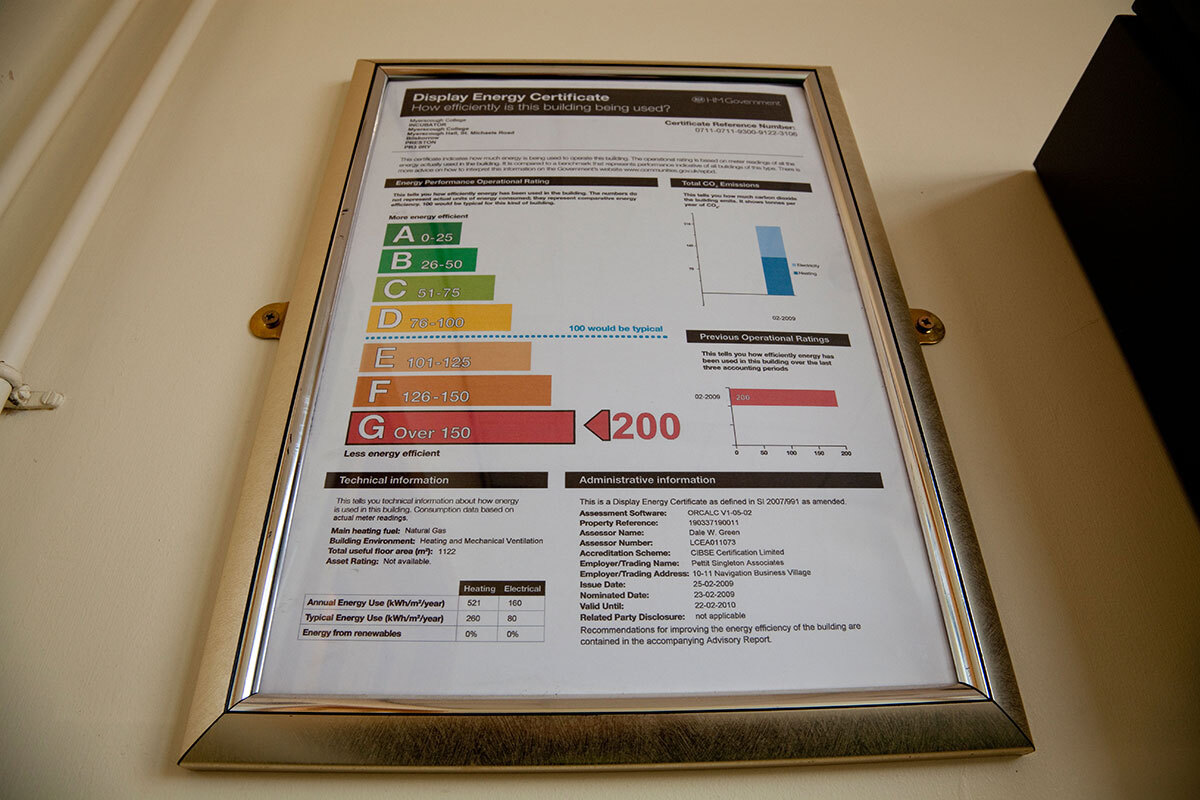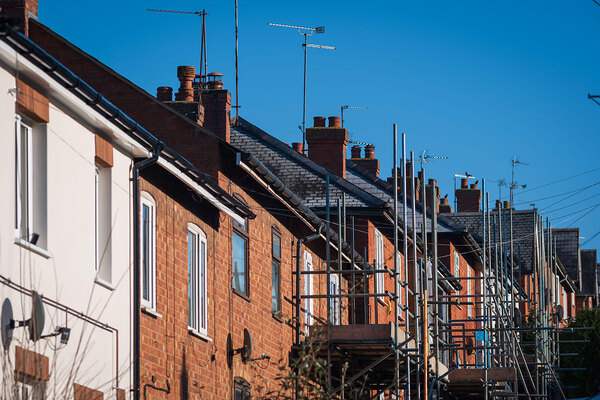Housing providers’ building safety and decarbonisation priorities are looming large
Inside Housing spoke to two councils to find out how they are meeting the decarbonisation, quality and safe homes challenges

In association with:
![]()
Nicholas Harne, assistant director of neighbourhoods and housing, Hull City Council
Hull City Council’s number of homes: 23,500
“We’ve got around 3,000 of what we call non-traditionally built homes – some dating back to the 1930s. They weren’t built to last a long time, and a lot are often thermally leaky and hard to heat,” says Nicholas Harne, assistant director of neighbourhoods and housing at Hull City Council. By investing £55m, the council is not only giving 3,000 properties a longer lifespan, but is also drastically improving the energy efficiency of the stock. The vast majority of the work is external solid-wall insulation. Some properties have also had improvements to their heating systems and windows. The houses are predominantly semi-detached and terraced, but all are non-traditionally built.
Mr Harne says: “There have been a few challenges, but the main one is the scale of these works. We wanted to complete the works over a five to six-year period, and that’s an enormous task. The technical requirements, regulations and systems are becoming more complex, and we don’t have a lot of those skills in-house – so by taking the partnership approach, we can bring in the right expertise and share those risks proportionately.”
Rising costs in the supply chain mean being in a strong partnership has helped, he explains, as his team has had to consider what to prioritise.
“Then there’s resident engagement. This project is about residents – by improving their homes, we’re helping to make them warmer, more comfortable and in better health, too,” says Mr Harne. “Our contractor, Fortem Solutions, has a resident liaison officer who ensures all residents are informed about the programme of works, and helps with any challenges. It’s difficult for people when their home is covered in scaffolding, but through that strong relationship, we’ve driven some strong satisfaction rates – even during the pandemic.
“With a huge investment programme like this, the council wants to ensure we get the biggest bang for our buck – and that includes benefiting the local economy through jobs, apprenticeships and using local suppliers. Strong partnerships built on solid communication, trust and understanding are key. We’re working towards the same shared outcomes: bringing down fuel bills, boosting the local economy and laying the foundations for a zero-carbon strategy fit for the future.”
Naz Parkar, director of homes and neighbourhoods, Kirklees Council
Kirklees Council’s number of homes: 21,700
When the council took its former ALMO back in-house in 2021, it identified a number of outstanding low and medium-risk issues related to fire risk among its 865 low-rise housing blocks.
The council’s direct labour organisation has the experience to fix these risks, says Naz Parkar, director of homes and neighbourhoods. “But we decided their focus needed to be on tackling high-risk actions in our blocks. We needed a dedicated resource to focus on addressing the [lower-risk] works, which included replacing flat doors, mechanical and electrical upgrades to fire, heat, ventilation and smoke detection systems, and relocating bins and scooter stores. With the recruitment challenges facing the sector, we procured an external partner.”
Fortem Solutions was appointed in December 2021, and the programme was mobilised in early 2022 by establishing a joint project team.
Mr Parkar explains: “Developing the ‘golden thread’ of information with Fortem has been one of our main priorities to help us produce, maintain and evidence the building safety case for each of the blocks. This element is critical to ensuring tenants are safe, as well as enabling us to evidence how we identify and mitigate fire risks. Fortem plays a vital role in this and together we will develop and maintain a common system to exchange and validate data and record keeping.”
The council will ensure this programme adheres to the compliance system for building safety. It will also collaborate with Fortem over expenditure, robust quality assurance, integration with other programmes of work, efficiency in delivery, and integration of tenants’ voices and social value.
Keeping residents involved and updated on the safety of their homes is central to the approach, says Mr Parkar. “This partnership will deliver fire safety improvements and improve the way we engage with tenants and all stakeholders to ensure their voice shapes the building remediation programmes we develop.”
Kirklees Council has also asked Fortem to deliver a range of social value outcomes through this programme including local employment, apprenticeships and supporting young people into work.
“We need to develop the new skills our businesses require so we can tackle the investment challenges”
First and foremost, we need to ensure the homes we provide are safe. Fire remediation works have been high up the agenda, and rightly so. We are seeing an increasing level of activity across the sector in this space and Fortem – which provides specialist property solutions – is increasing its skills, broadening its certifications and developing new systems to keep pace with the requirements set out in new standards and the Building Safety Act 2022. Our recent appointment by Kirklees Council is an indication of the determined approach by large social landlords to make their buildings safe and to do it quickly.
Next, we have housing quality, and the long-awaited Decent Homes 2 in England. This higher regulatory standard will introduce a new range of improvements to the homes we provide. It will be important we use this standard as a vehicle for adopting a new ‘principles-based’ approach around our sector’s key ambitions, such as safe homes, homes that are affordable to live in and homes that minimise the use of all forms of energy.
Third, the scale of the decarbonisation challenge is daunting, not just because of the need to act to meet stretching future emissions targets, but because of the significant increases in fuel costs that residents are facing today. Too many of the sector’s previously installed measures have not stood the test of time, and this is why projects like ours with Hull City Council are so important.
Through strong partnership working, we’ve fully embraced the new PAS 2035 and PAS 2030 (2019) design and install standards for external wall insulation. Using innovations in design, we have extended warranties to 60 years and through our TrustMark registration, we have supported significant funding drawdown.
Finally, we need to upskill our profession and ramp up the way we do business. We need to develop the new skills, expertise and competencies all our businesses require so we can tackle the scale and complexity of the investment challenges we face.
Ultimately, if we can build confidence in our own abilities to tackle the housing investment challenge, then residents should become more confident about us and our capability to provide the safe, secure, low-carbon, affordable homes they rightly expect.
Geoff Parkinson, director of procurement, Fortem Solutions
Sign up for our fire safety newsletter
Already have an account? Click here to manage your newsletters






